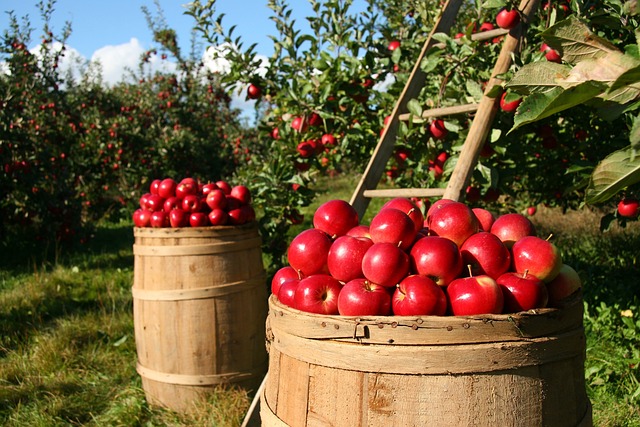Poultry farming is a lucrative venture in Nigeria, providing a sustainable source of income and nutrition for many communities. However, starting a poultry farm with limited resources can be challenging, but with careful planning and resourcefulness, it is possible to establish a successful operation.
This comprehensive guide aims to provide new farmers with practical tips on how to embark on poultry farming in Nigeria with minimal financial investment.
Starting a Poultry Farm with Limited Resources in Nigeria: A Comprehensive Guide for New Farmers
Before diving into poultry farming, conduct thorough research to understand the nuances of the industry. Identify the specific type of poultry you want to raise, whether it’s chickens, ducks, or turkeys. Develop a detailed business plan that outlines your goals, budget, and strategies for managing the farm effectively.
Start Small:
Begin your poultry farming journey on a small scale to minimize initial costs and gain valuable practical experience. Consider starting with a backyard flock and focus on raising one or two types of poultry initially. This approach allows you to learn the ropes without overwhelming financial commitments.
Use Local Resources:
Harness local materials and resources for constructing poultry housing and equipment. Building simple structures using locally available materials like bamboo, wood, or traditional bricks can significantly reduce costs. Utilize the skills and knowledge present in your community to create a sustainable and cost-effective farm.
Bartering and Networking:
Explore bartering arrangements with local businesses or farmers. Exchange goods or services for materials or assistance, fostering collaboration within the community. Networking with other poultry farmers provides valuable insights, advice, and potential partnerships, further supporting your venture.
Free-Range and Natural Feed:
Maximize the benefits of free-ranging for your poultry to reduce the reliance on expensive feed. Allow them access to open spaces where they can forage for natural food. Additionally, explore natural and locally sourced feed alternatives to minimize costs without compromising the nutritional needs of your flock.
Recycle and Reuse:
Embrace a sustainable approach by repurposing old or unused materials for constructing shelters and equipment. Consider using recycled items for feed and water containers. This not only reduces costs but also contributes to environmental conservation.
Read Also: Common Diseases in Goat and How to Treat them
Government and NGO Support:
Investigate government and non-governmental organization (NGO) programs designed to support small-scale farmers. These programs may offer grants, subsidies, or training opportunities. Take advantage of available resources to strengthen your poultry farming venture.
Skill Acquisition:
Acquire essential skills through workshops, online courses, or by seeking advice from experienced poultry farmers. Learn about disease prevention, biosecurity measures, and efficient farm management practices. Continuous learning will empower you to make informed decisions and overcome challenges.
Cooperative Farming:
Consider collaborating with other aspiring farmers to form a cooperative. Shared costs, resources, and knowledge can enhance your farming experience. A cooperative approach provides collective bargaining power, access to shared facilities, and mutual support among members.
Bootstrapping and Saving:
Bootstrap your poultry farm by reinvesting profits back into its development. Cut unnecessary personal expenses and save money to invest in your farm. This disciplined financial approach will help your venture grow over time.
Explore Microfinance Options:
Investigate microfinance institutions that may offer small loans to start or expand your poultry farm. Microfinance can provide the initial capital needed to purchase essential equipment, improve infrastructure, or scale up your operation.
Continuous Learning:
Stay informed about the latest developments in poultry farming through books, online resources, and agricultural extension services. Stay connected with industry trends, innovations, and best practices to continuously improve your farming techniques.
Starting a Poultry Farm with Little Money:
Starting a poultry farm with limited funds involves careful planning and resourcefulness. Begin small, focus on essential needs, and utilize local resources. Explore bartering arrangements, network with experienced farmers, and consider cooperative farming. Utilize cost-effective materials for housing and equipment and gradually scale up your operation as profits accumulate.
Cost of Starting a Poultry Farm in Nigeria:
The initial investment for a poultry farm in Nigeria varies. Starting small with backyard flocks can require as little as 50,000 to 100,000 Naira, while larger commercial operations may need several million Naira. Costs include housing, equipment, birds, feed, and initial healthcare expenses. Conduct thorough research and create a detailed budget based on your specific goals and scale.
Materials Needed to Start a Poultry Farm:
Essential materials for a poultry farm include:
Shelter materials (bamboo, wood, bricks)
Feeding and watering equipment
Bedding materials
Heating lamps or brooders for chicks
Nesting boxes for layers
Fencing for security
Ventilation systems
Feed Requirements for 50 Broilers in 6 Weeks:
The amount of feed needed for 50 broilers in 6 weeks depends on factors like the feed type, bird weight, and growth rate. On average, a broiler may consume around 1.5 to 2.5 kg of feed per week. Therefore, for 50 broilers in 6 weeks, you might need approximately 75 to 125 kg of feed.
Starting a Poultry Farm with 100k:
Starting a poultry farm with 100,000 Naira is possible, especially on a small scale. Focus on backyard flocks, use cost-effective materials, and prioritize essential equipment. Allocate funds wisely for birds, feed, housing, and basic healthcare. Consider sourcing locally and explore cooperative farming or bartering arrangements to stretch your budget further.
Most Profitable Type of Poultry:
The profitability of poultry farming depends on various factors, including market demand, management practices, and production costs. Broilers (meat chickens) and layers (egg-laying hens) are commonly considered profitable. However, market research is crucial to identify the current demand and potential profitability of each type in your specific location. Assess your goals and resources before deciding on the most suitable poultry type for your farm.
Conclusion:
Starting a poultry farm with limited resources in Nigeria requires dedication, resourcefulness, and a commitment to continuous learning. By incorporating these practical tips into your farming approach, you can overcome initial financial constraints and build a sustainable and successful poultry farming business. Remember to adapt your strategies based on experience and always seek opportunities for improvement in your poultry farming journey.



